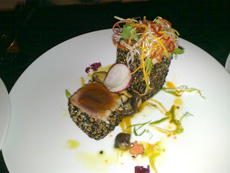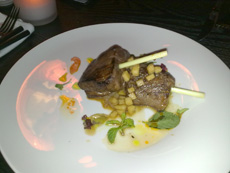Leader of the Dhivehi Rayyithunge Party (DRP) and former president of the Maldives, Maumoon Abdul Gayoom, today announced his resignation from politics ahead of the party’s national congress in February.
Gayoom apologised to the DRP and its members but said it was time for the “younger generation” to take over the party’s helm.
“The Maldives is a young country, and only will progress if youth become involved in politics and leadership,” the 72 year-old said at a live press conference held in TVM studios.
“I am not young any more. I have spent many years in office, and I want to spend time with my family. I need to give the younger generation the opportunity [to lead the party] – they are capable.”
Gayoom said he had been urged to remain as the DRP’s leader because people felt if he left many members would follow, and the party might even disband.
“They felt that if I’m not there the DRP will not win the presidential election. [But] the party is more important than the individual; everyone must focus on the party, not on one person.
“I have thought long and hard, and I believe the DRP needs a new generation [of leadership] to progress and strength. Many apologies to DRP members, but I would like to say I will not be running for the DRP presidency.”
The former president said he would remain a member of the DRP “and do what I can for the party”, but would not no longer take part in politics.
“I won’t comment on any political issues, but I will support whoever runs for the presidency. It’s important for the DRP to win the next election, and God willing DRP will win.”
There were many reasons for the DRP’s loss of the last election, he said, “but I don’t have proof of why the outcome was the way it was.”
He pleaded with the party’s members to remain in the DRP, “and join together to make the DRP a party that serves the public.”
Gayoom endorsed DRP vice-president Ahmed Thasmeen Ali as his replacement ahead of his brother, Abdullah Yameen.
“Thasmeen was my running mate for the last presidential election and in my opinion, he is the best [candidate] for the job,” Gayoom said. “But this is just my opinion. The leader will be decided in the DRP national congress.”
Reaction
Speaking at a dinner organised by the Indian High Commission this evening, President of the Maldives Mohamed Nasheed praised his predecessor for his decision.
“Today, as we celebrate the eve of India’s Republic Day, I also would like to congratulate our former president, President Maumoon Abdul Gayoom, who, after ruling this country for 30 long years, serving to the best of his ability and doing so much good for this country, decided to retire. I wish him all the best, and I wish his party all the best,” Nasheed said.
Senior members of the DRP reacted with shock at Gayoom’s decision to resign.
DRP spokesman Ibrahim Shareef said “many hardcore supporters were shocked and I’ve seen a lot of people crying over his sudden departure.”
There had been a lot of petitions within the party for Gayoom to remain as leader, “but despite all this, from what I can see, Gayoom is quite sincere. For the past 30 years I’ve watched him both at a distance and at close range, and he always does what he says.
“I think there was tremendous pressure applied on Gayoom to remain leader, but in the end the decision to hand over the reins to the younger generation was only ever going to be his own.”
Shareef said Gayoom’s departure “would have a very small impact” on the party, despite there being at present “no political leader of Gayoom’s stature in the country.”
“A lot of people feel very loyal to Gayoom. I think he will remain as the spiritual leader [of the DRP],” Shareef said.
“There will be a new leader when the dust settles – there’s lot of young people who are highly educated and very capable.”
The defection of key DRP supporters such as Dr Hassan Saeed prior to the presidential election was a blow the party, Shareef admitted, “and that helped the MDP candiate [Mohamed Nasheed] into the presidency.”
“A year on, many of those who left the DRP have found their decision was not a wise one. Many people now see that [Nasheed] is not a leader they thought he was.”
Shareef acknowledged that emerging factions within the DRP in the wake of Gayoom’s departure might “certainly create some problems somewhere.”
“But Thasmeen is a candidate who has the ability to hold the party together,” Shareef said. “He is not someone who will apply the letter of the law and not go witch-hunting. He will not take revenge on the opposition.
“Yameen is a very able man with great vision, but different political leaders have different strengths. Thasmeen’s strength is that he is able to work with the opposition, which is very important. The social fabric of the Maldives has been ripped apart by the party system and everyone is out trying to get revenge.”
Rumours of a deal
Gayoom denied rumours that he had met with president Nasheed last night and agreed to step down from the party leadership in exchange for the government ceasing to pursue him for alleged human rights abuses committed during his administration.
“There is no truth to the story. I have not met the president, nor do I have plans to meet him,” Gayoom said.
Shareef also said the reports were unlikely: “I don’t think so. No one pressured him, it was his decision alone.”
A return to politics?
MDP MP Mohamed Mustafa said he did not trust that Gayoom’s decision was final.
“I would like to believe he’s resigned but I dont trust him. I know he has a hidden agenda,” Mustafa said. “He has been sucking blood for 30 years and now he thinks he can wear white cloth.”
“If he has good intentions, that’s OK. But he knew the government would not provide financial assistance [due to former presidents] and let him open an office [while leader of the DRP]. He’ll just build his resources and come back to politics in three years.”
Mustafa described today’s news as “a victory for MDP – I can say that. The DRP are quarrelling internally and won’t be strong enough for the [forseeable] future. Thasmeen is not on good terms with Yaamyn, and Yaamyn not on good terms with his brother Gayoom. I think they are splitting to pieces inside and in many ways this is good for us. They had billions, but now they are beggars.”
However a highly-placed source inside the government said “there is no jubilation here. It was very hard on some people when Gayoom publicly denied he ever harmed anyone, and emotionally [Gayoom’s departure from public life] will be good for them. We can finally put this chapter behind us.”
Likes (1)Dislikes
(1)Dislikes (0)
(0) 
